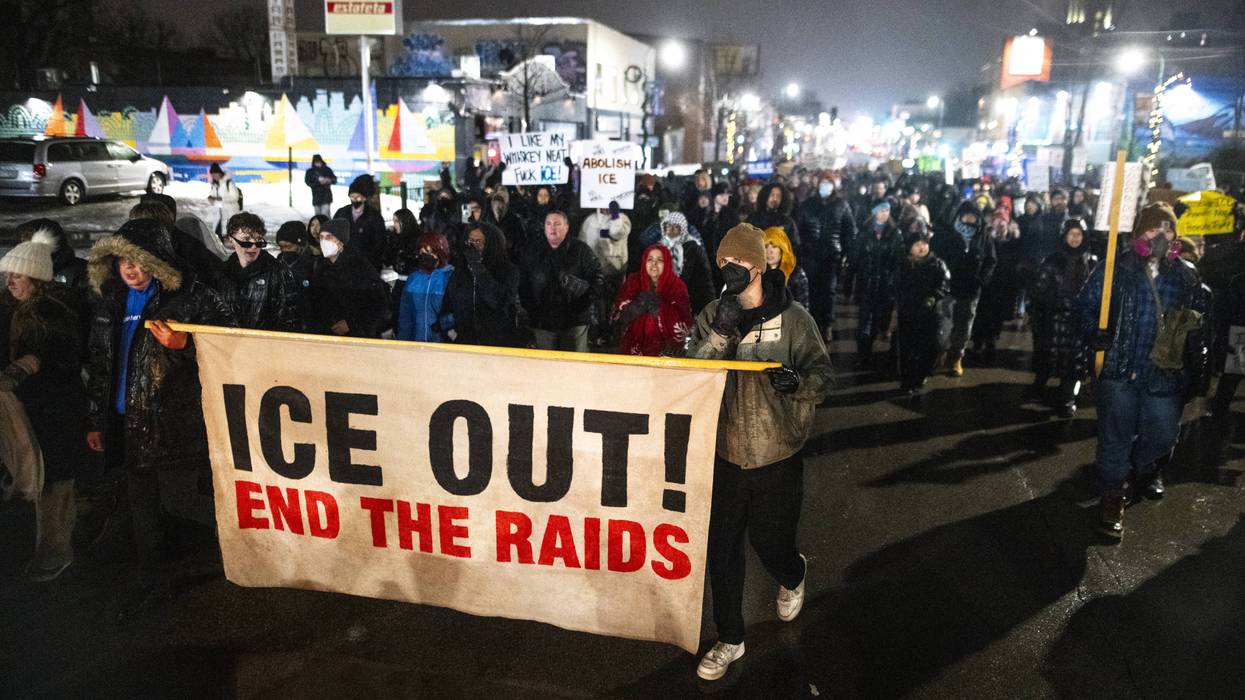Both of them are now imprisoned in New York City and poised to face a criminal trial for narco-terrorism and cocaine importing conspiracies, plus assorted weapons charges. Even more strikingly, President Donald Trump recently told the New York Times that the US could run Venezuela “for years.” On how that would be done, he (of course!) didn’t offer a clue. Naturally, a Venezuelan government forged in the face of a possible US occupation would comply with the whims of the Trump administration—assuming that such a government, capable of stabilizing the country and earning the loyalty of the majority of its people, can even be pulled together.
Trump’s rush to war in Latin America is a phenomenon that, until recently, seemed long over. Its revival should raise multiple red flags, given the history of Washington’s failed efforts to install allied governments through regime change. (Can you spell Iraq?) In fact, given this country’s lack of success with such attempts since the Soviet Union collapsed in 1991, it’s a good bet that regime change in Venezuela will not end well for any of the parties concerned, whether the Trump administration, the new leaders of Venezuela, or the people of our two countries.
Trump’s fixation on actually grabbing territory and his hyper-militarized interpretation of the 200-year-old Monroe (now, Donroe) Doctrine suggest that perhaps he wants to take America back to the 1850s.
In the meantime, Trump has already suggested that he might entertain the idea of launching military strikes on neighboring Colombia. After a White House phone call between that country’s president Gustavo Petro and him, however, Time Magazine speculated that, when it comes to “who’s next?,” it might not be Colombia but Cuba, Mexico, Greenland, or even Iran. What’s not yet clear is whether Trump and crew will use the US military, CIA-style covert action, economic warfare, or some combination of all of them in pursuit of their goals (whatever they might prove to be).
The one thing that should be clear by now is that pursuing such global regime-change campaigns would be sheer madness. Going that route would sow chaos and instability, while harming untold numbers of innocent civilians, all in pursuit of a futile quest for renewed US global supremacy.
When, long ago, President Trump first started using the term “Make America Great Again,” I assumed he was thinking of the 1950s, when a surge of post-World War II economic growth and government investment lifted the prospects of a select group of Americans (while pointedly excluding others). That period, of course, was when the efforts that produced the modern civil rights, women’s rights, and gay and trans rights movements were in their early stages. Prejudice was the norm then in most places where Americans lived, worked, or got an education, while McCarthyism cost untold numbers of people their jobs and livelihoods and had a chilling effect on the discussion or pursuit of progressive goals.
Such a return to the 1950s would have been bad enough. However, Trump’s fixation on actually grabbing territory and his hyper-militarized interpretation of the 200-year-old Monroe (now, Donroe) Doctrine suggest that perhaps he wants to take America back to the 1850s. If so, count on one thing: We’ll pay a high price for any such exercise in imperial nostalgia.
Intervention as the Norm: The History of US Aggression in Latin America
The Trump administration’s attempt to control Latin America and intimidate its leaders and citizens is, of course, nothing new. At the start of the 20th century, President Teddy Roosevelt announced his own “corollary” to the Monroe Doctrine, which went well beyond the original pronouncement’s warning to European powers to avoid challenging Washington’s dominance of the Western Hemisphere. Roosevelt then stated that “chronic wrongdoing… may in America, as elsewhere, ultimately require intervention by some civilized nation, and in the Western Hemisphere the adherence of the United States to the Monroe Doctrine may force the United States, however reluctantly, in flagrant cases of such wrongdoing or impotence, to the exercise of an international police power.”
The Office of the Historian at the US State Department points out that, “[o]ver the long term, the [Roosevelt] corollary had little to do with relations between the Western Hemisphere and Europe, but it did serve as justification for US intervention in Cuba, Nicaragua, Haiti, and the Dominican Republic.”
In fact, there were dozens of US interventions in Latin America and the Caribbean in the wake of Roosevelt’s statement of his doctrine. Later in the century, there were US-aided coups in Guatemala (1954), Brazil (1964) and Chile (1973); invasions of Cuba (1961), the Dominican Republic (1983), and Grenada (1983); armed regime change in Panama (1989); the arming of the Contras in Nicaragua (1981) and death squads in El Salvador (1980 to 1992); and support for dictatorships in Argentina, Bolivia, Brazil, Chile, Uruguay, and Paraguay in the 1970s and 1980s.
In all, according to historian John Coatsworth, the United States intervened in the Western Hemisphere to change governments 41 times from 1898 to 1994. Seventeen of those cases involved direct US military intervention.
In short, the Trump administration is now reprising the worst of past US policies toward Latin America, but as with all things Trumpian, he and his cohorts are moving at warp speed, and on several fronts simultaneously.
The Perils of Regime Change
Although Trump officials are no doubt celebrating their removal of Nicolás Maduro from power in Venezuela, the battle there is far from over. When the US drove Saddam Hussein’s Iraqi forces out of Kuwait in a six-week military campaign in 1991, there was a great deal of celebratory rhetoric about how “America is back” or even that the United States was the single most impressively dominant nation in the history of humanity. But as historian Andrew Bacevich has pointed out, the 1991 Gulf War was just the start of what became a long war in Iraq and the greater Middle East. In Iraq, the ejection of Hussein was followed by relentless bombing, devastating sanctions, and a 20-year war of occupation that ended disastrously.
Wishful thinking was rampant in the run-up to the Bush administration’s 2003 invasion of Iraq, with administration officials bragging that the war would be a “cake walk” and would cost “only” $50 to $100 billion. When all was said and done, however, that war would last 20 years at a cost of well over $1 trillion; hundreds of thousands of civilians would die; and hundreds of thousands of US military personnel would be killed, maimed, or left with Post-Traumatic Stress Disorder (PTSD) or Traumatic Brain Injuries (TBI).
The Venezuelan debacle—which is surely what it will be considered once all is said and done—is but another sign that the Trump administration’s tough-guy rhetoric and bullying foreign and economic policies are, in fact, accelerating the decline of American global power.
The opportunity costs of America’s post-9/11 wars in Afghanistan, Iraq, and elsewhere have indeed been enormous. The Costs of War Project at Brown University estimates that the taxpayer obligations flowing from those conflicts exceeded $8 trillion. As the National Priorities Project at the Institute for Policy Studies has noted, that $8 trillion would have been enough to decarbonize the entire US electrical grid, forgive all US student-loan debt, and triple the investment in green energy and related items initiated by the Biden administration under the Inflation Reduction Act (investments that have since been rolled back by the Trump administration).
Of course, that money is gone, but given the experience, you might think that this country’s leadership (such as it is) would go all in to avoid repeating such costly mistakes, this time in Latin America, by attempting to dominate and control the region through force or the threat of it. Consider it a guarantee that such a policy will never end well for the residents of the targeted nations. And count on this as well: It will also exact a high price on Americans in need of food, housing, education, a robust public health system, and a serious plan to address the ravages of climate change.
Why Venezuela? Oil, Ego, and the Quest for Dominance
The Trump administration’s original rationale for pursuing regime change in Venezuela was to stop the flow of drugs into the United States, a position that didn’t stand up to even the most casual scrutiny. After all, Venezuela isn’t faintly one of the more significant sources of drugs heading into this country and, in particular, it isn’t a supplier of fentanyl, the deadliest substance being imported.
Donald Trump has since stated repeatedly (as in a January 3 press conference), that the intervention he ordered was, in fact, about seizing Venezuela’s oil resources and developing them to the benefit of the US through the activities of American oil companies. “We’re going to have our very large United States oil companies, the biggest anywhere in the world,” he said, “go in, spend billions of dollars, fix the badly broken infrastructure, the oil infrastructure, and start making money for the country.”
Writing in The Nation, Michael Klare pointed out that upping Venezuela’s oil output would, in fact, be no simple matter. Trump’s comments, he suggested, were “imbued with nostalgia and fantasy” and “all this flies in the face of economic and geological reality, which stands in the way of any rapid increase in Venezuelan output and oil profits.” That country’s oil supplies are, in fact, mostly in the form of heavy crude, which is particularly difficult to extract, and its infrastructure for accessing such oil is decrepit, thanks to years of sanctions and neglect. As Klare points out, the London-based consultancy firm Energy Aspects has suggested that it would take “tens of billions of dollars over multiple years” to restore Venezuela’s oil production to the higher levels of years past.
Realism, however, has never been Donald Trump’s strong suit, and his dream that seizing Venezuela’s oil resources will be a piece of cake only reinforces that point. The same can be said for his assertion that the United States could rule Venezuela, perhaps for years, and that everything is bound to go smoothly. The disastrous consequences of the US occupations of Iraq and Afghanistan, among other places, suggest otherwise.
Beyond oil, the intervention in Venezuela satisfies Trump’s personal will to power, advances Secretary of State Marco Rubio’s goal of weakening and perhaps overthrowing the government of Cuba (by denying it Venezuelan oil), and puts progressive governments in Latin America on notice that if they don’t bend the knee to US economic and political demands, they may be next.
Interventionism on Steroids: A Recipe for American Decline
Since the kidnapping of Nicolás Maduro and his wife in Venezuela, administration rhetoric about possible attacks on Colombia and the seizing of Greenland has only accelerated. At another moment in history, perhaps such claims could have been dismissed as the idle bluster of an aging oligarch. But the Trump administration has already acted on too many of its most outlandish policy proposals—with its attempt to seize and control Venezuela high on the list—for us to treat the president’s aggressive statements as idle threats.
The Venezuelan debacle—which is surely what it will be considered once all is said and done—is but another sign that the Trump administration’s tough-guy rhetoric and bullying foreign and economic policies are, in fact, accelerating the decline of American global power. The question is, given the administration’s costly and dangerous military-first foreign policy, how much damage will this country do to people here and abroad on the way down?
Were Washington to put down its sword and invest in the real foundations of national strength—a healthy, well-educated, unified population—it could play a constructive role in the world, while delivering a better quality of life and a more responsive government to the American public.
It doesn’t have to be this way, of course. There could be a shift from this country’s current addiction to war as a central feature of its interactions with other nations to a policy of restraint that would recognize that the days when the United States could presume to run the world are over. In truth, US dominance was always overrated, given fiascos like the interventions in Vietnam, Afghanistan, and Iraq, where the US could not impose its will on much smaller nations with far fewer resources and far less sophisticated weaponry. Those experiences should have taught policymakers of both parties to proceed with caution, but the learning curve has, at best, been slow, painful, and erratic—and in the era of Donald Trump, seemingly nonexistent.
Warmed-over appeals to restore American greatness through the barrel of a gun are, of course, dangerously misguided, as our recent history has so amply demonstrated. It is long past time for us to demand better stewardship from our elected and appointed leaders.
Were Washington to put down its sword and invest in the real foundations of national strength—a healthy, well-educated, unified population—it could play a constructive role in the world, while delivering a better quality of life and a more responsive government to the American public. This would not mean eliminating the ability to defend the country by force if need be, but it would mean acknowledging that the need to do so should be rare, and that a more cooperative approach to overseas engagement, grounded in smart diplomacy, is the best defense of all. That, in turn, would mean a smaller military (and a far more modest military budget) that could free up resources to address urgent needs, from dealing with climate change and preventing new pandemics to reducing poverty and inequality.
At this moment in our history, the vision of a less militarized America may seem like a distant dream, but striving for it is the only way out of our current predicament.


